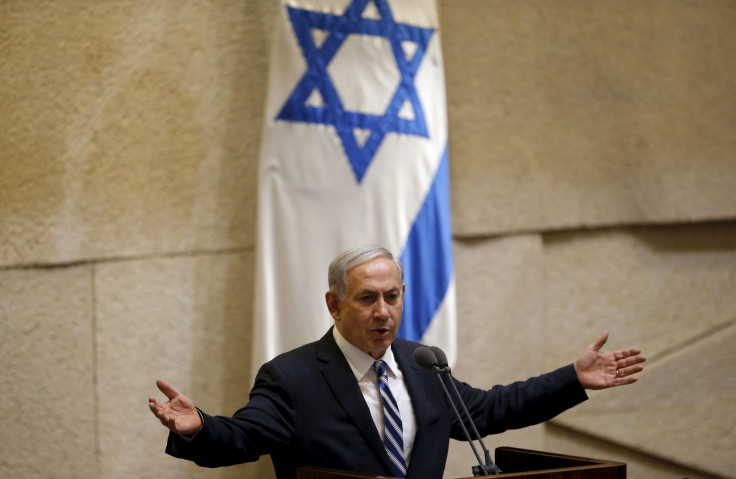US-Israel Relations 2016: How Many Israeli Settlements Are No Longer ‘Legally Valid’ After UN Resolution?

Following the passing of the historic United Nations Security Council resolution Friday that demanded an end to Israeli settlement-building in Palestinian territories, Israeli Prime Minister Benjamin Netanyahu responded by vowing to reevaluate his country's ties to the U.N., cutting its civilian ties with Pakistan and summoning the U.S. ambassador and other foreign envoys to lodge protests against their support for the resolution.
Notwithstanding Netanyahu's response, the resolution is largely symbolic as it does not include sanctions or punitive measures against Israel, according to the Associated Press. But it raises an interesting question — how many settlements would Israel have to dismantle in order to do justice in the eyes of the international community?
From 1967 to late 2013, Israel built 125 settlements in the West Bank that have been recognized by the Ministry of the Interior as “communities,” according to B'TSELEM — the Israeli Information Center for Human Rights in the Occupied Territories.
“The settler population in the West Bank is estimated to be upwards of 547,000: in late 2013 the population of the West Bank settlements was 350,010; in late 2012 there were 196,890 individuals living in Israeli neighborhoods in East Jerusalem,” the B'TSELEM report said.
Apart from this, the human rights group also noted several other settlements in the form of outposts (estimated to be nearly 100) and other settler enclaves in “the heart of Palestinian neighborhoods in East Jerusalem.” Some Palestinian neighborhoods annexed in 1967, the report said, were brought under Jerusalem’s jurisdiction.
The U.N. resolution urges all states to distinguish between Israel and "the territories occupied since 1967" and calls the existence of the settlements a "flagrant violation" of international law which has "no legal validity." It also declares the settlements are "dangerously imperilling the viability of the two-state solution".
The U.S. typically uses its veto power in the Security Council to support its ally Israel, but marked a departure from its usual strategy when it abstained from the vote on the resolution. The 15-member council passed the resolution — which was proposed by Malaysia, New Zealand, Senegal and Venezuela after Egypt was pressurized into dropping it — with 14 votes in favor and none against.
In the aftermath of the vote, Netanyahu accused the administration of U.S. President Barack Obama of colluding with the Palestinians to push for the resolution's adoption in a weekly cabinet meeting.
"According to our information, we have no doubt the Obama administration initiated it (the resolution), stood behind it, coordinated the wording and demanded it be passed," Netanyahu told the cabinet in public remarks, according to Reuters.
Reminder: the United States gives more money in aid to Israel than it does the last seven countries it bombed *combined* pic.twitter.com/rLN7htu0pr
— Adam H. Johnson (@adamjohnsonNYC) December 25, 2016
The White House denied the allegation. But Netanyahu found an ally in president-elect Donald Trump who tweeted on Saturday: "The big loss yesterday for Israel in the United Nations will make it much harder to negotiate peace. Too bad, but we will get it done anyway!"
© Copyright IBTimes 2024. All rights reserved.






















